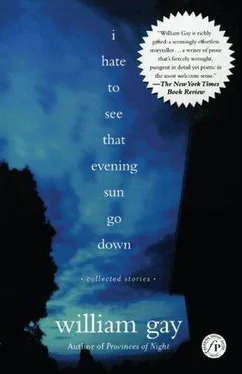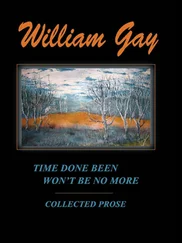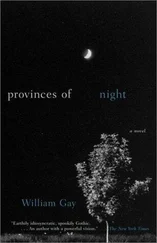Partly it was the music, but it was not entirely the music. When she pestered him hard enough, he’d laugh and tell stories about people who were just names on record labels, names in the pages of Rolling Stone . Once in the early ’70s he’d been playing the Fifth Peg in Chicago’s Old Town with John Prine and they had gotten drunk and stolen shopping carts from a supermarket parking lot and raced them in the streets, and he told her about getting in a fight with Townes Van Zandt in a Texas honky-tonk so rough the stage was chicken-wired to deflect the beer bottles and Van Zandt had hit him in the corner of the eye with a metal wastebasket. He showed her the scar.
These stories with their names familiar to her did not seem to be told to impress her. The names he dropped were just names, and he did not tell stories that made him look good. They were just things that had happened to him, and in time the most sordid of them became very dear to her.
For there were times when the stories darkened. Once when he’d backslid and was drinking Wild Turkey, his mind sidestepped past the harmless pranks to a point where the high, wild times were lost past all reclaiming, and he and Van Zandt were shooting heroin in the bathroom of a honky-tonk with vomit on the floor and a drunk sleeping sprawled in a stall and a hole in the roof where you could see the constellations turning slowly on themselves like carousels of unreckonable magnitude, and the night itself seemed to be settling over him like the folds of a shroud.
Or maybe he just knows which buttons to push, she told herself in a moment when her mind was clear. He’s been at this all his life; by now he knows what works, what doesn’t.
There were silences when he seemed to be hearing something she couldn’t hear, or maybe just listening for it to begin. Silences that gave her the eerie impression that he was not there, maybe not even alive, as if all his life had been used up. As if his life had consisted of a finite number of events and the time to do them, but everything had become unphased, and the things had all been done, and he was left with dead space he did not know how to fill.
♦ ♦ ♦
WHAT IS THIS Robert Vandaveer bullshit about? Charles wanted to know.
Charles wants to know what this Robert Vandaveer bullshit is about, she told Robert.
What did you tell him it was about?
I told him I enjoyed your company, that nothing was going on. I told him I didn’t complain about the time he spent with his friends, and that Stephen was always with us.
What did he say to that?
He said his friends weren’t old enough to be his father and they didn’t have hair down to their ass.
By now they’d passed some subtle point. It wasn’t marked, but they knew they’d passed it anyway. They weren’t exactly flirting, but they weren’t exactly anything else, either.
Tell him I’m gay.
What? she was laughing. Are you?
No, but I don’t mind if Charles thinks so. In fact I want him to think so. Tell him I’m using you to get to him. Tell Charles I have designs on him.
Charles, when told a slightly modified version of this, was surprised. I knew the son of a bitch was queer when he wouldn’t let us kill deer off that place, he said.
SHE WAS WATCHING a music documentary on public television and reading a book when a heavyset young man with a wing of blond hair falling over his left eye was being interviewed and mentioned Robert’s name. The volume seemed to grow louder just for the length of time it took to say Robert Vandaveer. She closed the book and laid it aside.
He was the daddy of us all, the young man, whose name was Steve Valle, said. Without him we’d never have been, it’s as simple as that. He kicked open a lot of doors, and the rest of us slipped through. He could have been the biggest of us all. He could have been another Dylan. But booze and sex and drugs, maybe in that order, brought him down. Brought him down hard.
How well did you know him?
Vangie suddenly realized they sounded as if they were discussing a dead man.
I knew him as well as one man can know another. He took me under his wing. He showed me the ropes.
Vangie thought the young man sounded pompous and arrogant. He’d only recorded one album.
Robert was working on his interminable chimney when she told him about Valle. She wondered what he’d do with his time when he finished the chimney. Perhaps commence another right beside it.
He made you sound important, she said. He said you were the daddy of them all.
I believe I remember him, Vandaveer said. But not like that. But God knows I don’t remember a lot of things. I’ve got whole years with long stretches erased out of them. The way I remember it, he was just another hustler. Trying to steal songs, lines out of songs. There were a thousand of him. Kids who’d slit your throat for a killer line.
You took him under your wing.
Grinning, he laid the trowel down and extended his arms out from his side. Then he was obviously lying, he said. As you can see, I possess not a wing to my name.
You could have been the biggest of us all, but booze and sex and drugs brought you down hard, she told him, grinning back. You never showed me the ropes.
WHEN THEY LOST STEPHEN they were watching the nighthawks. They lost him that quick. He was there, he was gone. They were at a music fair in a Nashville park. The Parthenon was lit by a battery of floodlights, and the stage bled strobic, pastel neon into the August night. They were sprawled on their backs before the stage where a funk band was playing, and where the light merged seamlessly with the ebony heavens, thousands of nighthawks darted and checked on the updrafts like bats, and they seemed to be feeding on the light itself.
Stephen? she said.
She was up instantly, looking wildly about. There were so many people sprawled around them. Did you see my little boy leave? she demanded of the man next to them on the grass. The man was apologetic; he seemed to feel this was something he’d be held accountable for. I’m sorry, the man said, I wasn’t even looking, I was watching the stage. Stephen’s Coke and a CD Robert had bought him still lay on the grass. She snatched them up. Let’s go, she said.
They searched in widening circles through the crowd. Everyone looked alike, a faceless mass. Hundreds of children, none of whom were Stephen. Everyone else seemed to have kept up with their children. She was scared, and then she was more scared. We’ve got to get his name over the public-address system, Robert said. She looked once at Robert’s face for comfort, but he looked as frightened as she felt. Stephen was hopelessly lost, kidnapped, and already jammed roughly into the trunk of a car, riding away, easing into a night of horror that would climax with his naked body flung in a ditch and a piece of dirty plastic thrown over it.
When Robert saw him, Stephen was coming out of a yellow portable toilet fastening his jeans. He was almost on the other side of the park, but he didn’t look as if he knew he was lost. Robert picked him up, held him tightly in his arms. There was a bandstand nearby where no one was performing, and they went and sat down on folding chairs. By now Vangie was crying. She was crying, and she couldn’t stop. She kept shaking her head and trying, but she couldn’t stop. Finally Robert put his arm around her. It was the first time he’d touched her. She twisted away. We can’t, we can’t, she said, don’t touch me. He released her, lowered the arm. Robert had only seen him coming out the door of a portable toilet, but she felt he’d snatched Stephen from the arms of a madman,’ from the path of a drunken driver. It felt like a miracle. As if the rest of her life had been torn from her to show her what loss would be like, then handed carelessly back.
Читать дальше












